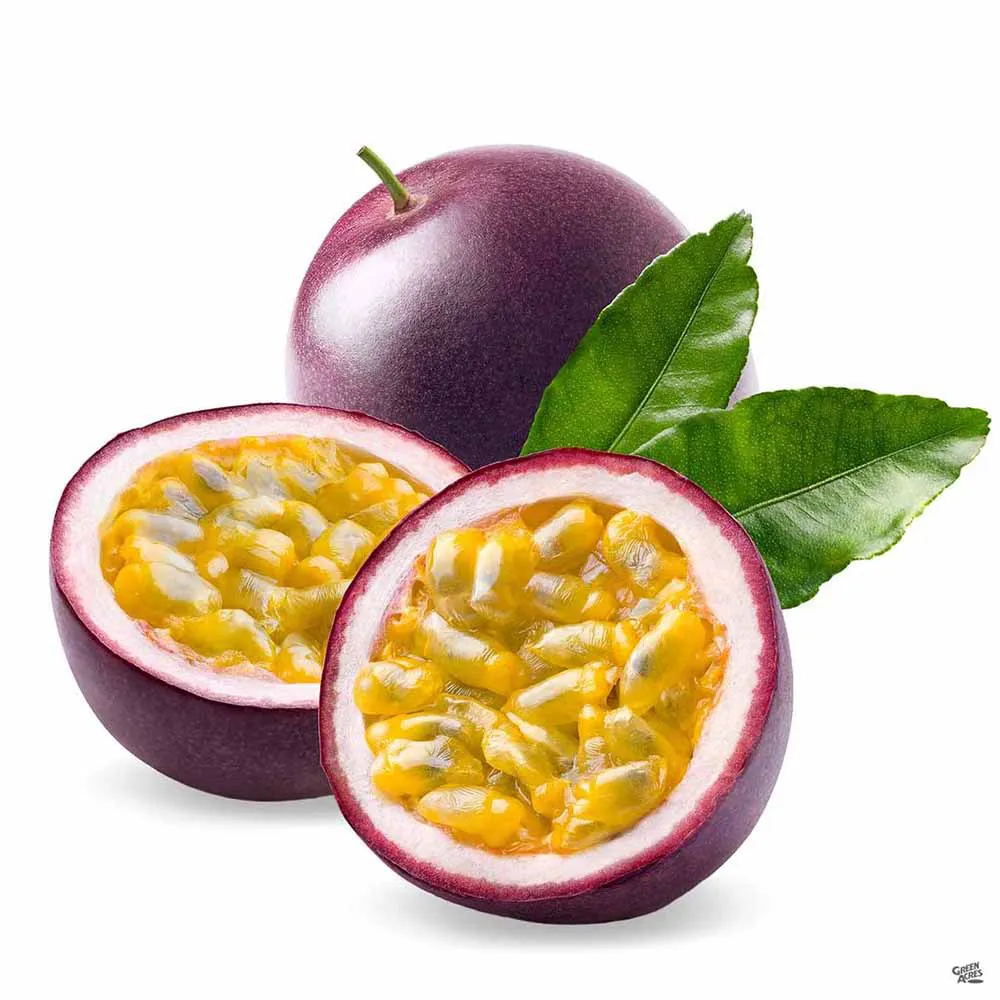
| Glycemic Index | Glycemic Load |
30
|
4
|
The glycemic index (GI) of passion fruit equals to 30, which classifies it as a low GI food. The glycemic load (GL) of passion fruit is equal to 4, which classifies it as a low GL food.
| Nutrition Facts | |
| Calories (kcal) | 68 |
| Carbohydrates (g) | 13.4 |
| Proteins (g) | 2.4 |
| Fats (g) | 0.4 |
100 grams of passion fruit, granadilla (fresh) contain 68 kcal (285 kJ), 2.4 grams of proteins, 13.4 grams of carbohydrates, and 0.4 grams of fats.
Passion fruit, also known as granadilla, is a tropical fruit that is known for its tangy flavor and nutritional benefits. This small, round fruit is filled with juicy pulp and seeds and is a rich source of vitamins, minerals, and antioxidants.
Passion Fruit Nutrition Facts:
One medium-sized passion fruit (about 18 grams) contains:
- Calories: 17
- Carbohydrates: 4 grams
- Fiber: 2 grams
- Protein: 0.2 grams
- Fat: 0.1 grams
- Vitamin C: 30% of the daily value (DV)
- Vitamin A: 4% of the DV
- Iron: 2% of the DV
- Potassium: 2% of the DV
Passion Fruit Health Benefits:
- Improved digestion: Passion fruit is a rich source of dietary fiber, which can promote regular bowel movements and prevent constipation.
- Boosts Immunity: Passion fruit is a rich source of vitamin C, an antioxidant that can boost immune function and reduce inflammation in the body.
- Reduced inflammation: Passion fruit contains a variety of antioxidants and anti-inflammatory compounds that can reduce inflammation and lower the risk of chronic diseases.
- Improved eye health: Passion fruit is a rich source of vitamin A, which is essential for eye health and can help prevent age-related eye diseases.
- Heart health: Passion fruit is low in sodium and high in potassium, which can help regulate blood pressure and reduce the risk of heart disease.
Passion Fruit Drawbacks:
- High in oxalates: Passion fruit contains oxalates, which can contribute to the formation of kidney stones in some people.
- Allergic reactions: Some people may have an allergy to passion fruit, which can cause symptoms such as hives, itching, and difficulty breathing.
- Interaction with certain medications: Passion fruit may interact with certain medications, such as blood-thinning medications, and should be consumed in moderation by those taking these medications.
Tips for Consuming Passion Fruit:
- Choose ripe fruit: Passion fruit should be ripe and slightly wrinkled for optimal flavor and nutrient content.
- Use in a variety of dishes: Passion fruit can be used in a variety of dishes, including smoothies, yogurt, and desserts.
- Remove seeds: The seeds in passion fruit are edible but can be tough and difficult to digest. Consider straining the pulp to remove the seeds before consuming.
- Avoid overconsumption: Due to its high oxalate content, it is important to consume passion fruit in moderation and avoid overconsumption.
In conclusion, passion fruit, or granadilla, is a nutritious tropical fruit that offers numerous health benefits. Its high fiber, vitamin, mineral, and antioxidant content can improve digestion, boost immunity, reduce inflammation, improve eye health, and promote heart health. However, it is important to consume passion fruit in moderation and be aware of any potential allergies or interactions with medications.


